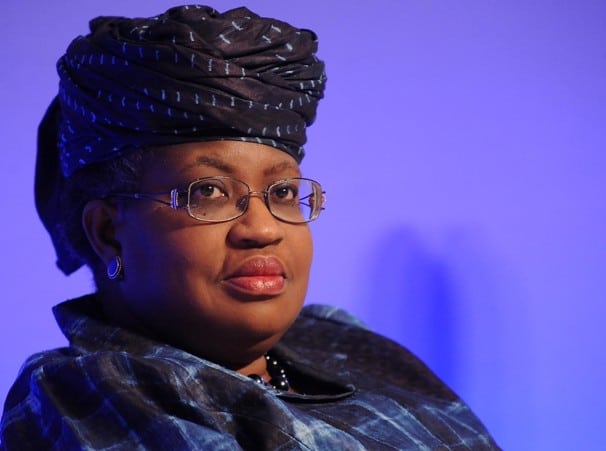Director-General, World Trade Organisation (WTO), Dr Ngozi Okonjo-Iweala, yesterday arrived in Nigeria on a 4-day official visit aimed at enhancing trade and improving the Nigerian economy.
The News Agency of Nigeria (NAN) reports that Okonjo-Iweala, who assumed duty on March 1, 2021, as the new Director-General of the WTO, is also in Nigeria to express appreciation to President Muhammadu Buhari and hold talks on how to stimulate economic activities.
Speaking to journalists on arrival, Okonjo-Iweala, said the objective of her visit was to see how the WTO could better assist Nigeria and her entrepreneurs on improving the economy.
On Nigeria’s share of trade in Africa, she expressed optimism that Nigeria could use the African Continental Free Trade Area (AfCFTA) to boost trade and investment.
“And to do that we have to improve our investments and add value to some of our products, because the AfCFTA is a unique opportunity for us to be able to engage commercially with other African nations to boost export.
“When you boost export, you create more jobs. We are also going to talk about the digital economy and how young people are accessing the internet for e-commerce, those are some of the issues and more activities we can create to support that,” she said.
Dr Nasir Sani-Gwarzo, Permanent Secretary, Ministry of Industry, Trade and Investment, noted that it was a unique moment and opportunity to thank the world for supporting us to achieve this feat of having a Nigerian as the head of the WTO.
“We have received a lot of support from many countries, we appreciate them.”
Her visit is specifically to start from home to say thank you to the President and Nigerians who supported her from home and in the Diaspora.
“Tremendous support has gone into the process and we are grateful that she emerged, after a very thoroughly contested process as the D-G. It is a proud moment for Nigeria, for herself and also for women in the world,” Sani-Gwarzo said.
According to the programme of the visit, on Monday, March 15, she will be meeting with the President and the Chief of Staff to the President at the presidential villa, and later hold a meeting with the Minister of Industry, Trade and Investment, Otunba Adeniyi Adebayo, and Minister of state, Mariam Katagum at the ministry.
On Tuesday, March 16, Okonjo-Iweala will be meeting with the Central Bank of Nigeria (CBN) Governor, Godwin Emefiele, after which she will meet the Presidential Task Force on COVID-19, among others.
She will proceed to a meeting with the Captains of Industry, which will be followed by a Press Conference at Transcorp Hilton, Abuja.
Furthermore, on Wednesday, March 17, the WTO D-G will hold a meeting with the Women Entrepreneurs, SheTrade, and operators of Micro, Small and Medium Enterprises (MSMEs), followed by a press conference with some ministers.
A dinner and reception in honour of Okonjo-Iweala will hold at Transcorp Hilton, Abuja, to round-off the visit. (NAN)


 Forex3 weeks ago
Forex3 weeks ago
 Naira3 weeks ago
Naira3 weeks ago
 Billionaire Watch3 weeks ago
Billionaire Watch3 weeks ago



 Naira3 weeks ago
Naira3 weeks ago






 Naira3 weeks ago
Naira3 weeks ago




 Naira2 weeks ago
Naira2 weeks ago






 Naira2 weeks ago
Naira2 weeks ago




 Naira4 weeks ago
Naira4 weeks ago























